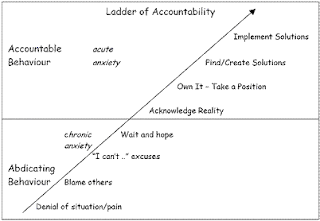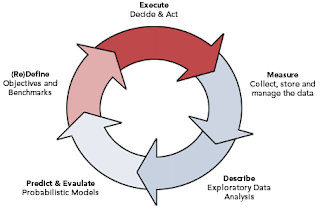
Are we making your record - or are we making another record I should know about?
I ask this question of nearly every prospective client. It's just my way of knowing what we're getting into - and my way of establishing value alignment from take one. Because obviously - it super important to make the record the artists wants. A record should be legacy.
98.99% of artists claim emphatically that we are making their record. That they are willing and committed to taking the time and energy [emotional] to find and create their sonic and emotive signature. But invariably, shortly into the process, it becomes clear that we are (re)making their favorite record(s). That we are in essence inserting them into a pre-existing archetype or concept. Akin to using stock photos in your personal photo album or b-roll video in your own home videos.
I'm not sure if it's always been this way, but I notice lately that most people define success as successfully imitating something else successful. Whereas even a decade ago, entrepreneurs (artists are the quintessential entrepreneurs) the idea was to do something new - something that would become the definition of success, nowadays the idea is to clone what's already a proven winner. The net result is often a product that's unremarkable and expendable - measurable by looking at the absence of modern recording artists with career longevity.
I'm always astonished how with all of the different guitars, drums, mics, mixing consoles and most importantly artists available, most popular music sounds +/- the same. In a world of infinite creative options, it seems both artists and the bulk of consumers want the same song - over and over again? That music has been reduced to a brand of soda or cigarettes. I'm a Nickleback man?!?
My two cents - do yourself and your fans a favor. Do something unique. Do something new. Do something you.
http://www.twitter.com/jacobdetering
http://www.facebook.com/jacobdetering
http://www.redpillonline.com
 If you're paying attention out there, talk of utilizing social media metrics to measure the size and engagement of your fan base is nothing new. Topspin, Next Big Sound, Rockdex and others are now offering pretty cool aggregation and analytic tools - which in my mind are key to understanding and moving towards your market. All that being said, even the best data is worthless if not extrapolated into actionable items/behaviors aimed towards improving your business. Coming from the business world, root cause analysis, action planning and repeatable routine are a familiar ethos for me. But in talking to artists, it's evident that there's a lot of confusion and frustration around what all this information means and how it's a value add.
If you're paying attention out there, talk of utilizing social media metrics to measure the size and engagement of your fan base is nothing new. Topspin, Next Big Sound, Rockdex and others are now offering pretty cool aggregation and analytic tools - which in my mind are key to understanding and moving towards your market. All that being said, even the best data is worthless if not extrapolated into actionable items/behaviors aimed towards improving your business. Coming from the business world, root cause analysis, action planning and repeatable routine are a familiar ethos for me. But in talking to artists, it's evident that there's a lot of confusion and frustration around what all this information means and how it's a value add.Information which should be empowering is instead, overwhelming.
Results - either good or bad - are the bi-product of behavior(s). That being said, my first step in action planning always involves a fact finding mission. Out of the gate, capture as much data about your business as possible. Below is a great little eye chart penned (literally) by music business guru and friend George Howard. Here,
 George suggests taking a baseline of current performance across all areas of your business: Twitter Followers, Facebook Friends, Myspace plays, email addresses gathered at shows, email addresses gathered online, average net take from shows, etc. With this data in hand, draw a spaghetti diagram of all the behaviors connected to each result. What does getting people to sign your email list at shows look like? What actionable steps are you taking to add Twitter followers (spam-bots don't count!) Remember, include as much detail as possible, here. Key is understanding the whole process involved in arriving at any given result.
George suggests taking a baseline of current performance across all areas of your business: Twitter Followers, Facebook Friends, Myspace plays, email addresses gathered at shows, email addresses gathered online, average net take from shows, etc. With this data in hand, draw a spaghetti diagram of all the behaviors connected to each result. What does getting people to sign your email list at shows look like? What actionable steps are you taking to add Twitter followers (spam-bots don't count!) Remember, include as much detail as possible, here. Key is understanding the whole process involved in arriving at any given result.From here, some opportunities may become very obvious. One example would be: I don't get any email addresses at shows because I don't bring a list with me. Others, may be more elusive and difficult to understand. Using the email list as an example, begin to change behaviors around email collection at shows one behavior at a time. For example, for two weeks bring a list to every single performance. At the end of two weeks, measure your data, document your progress and re-evaluate.
Go figure! The simple act of bringing a list meant you captured 23 email addresses over two weeks! Next, dive back into the behaviors: Do you mention the email list during the performance? Do you have someone soliciting emails? Do you offer free media for an email address? Change those things, one by one, measuring after each trial. Absorb what works, toss what doesn't. And of course, iterate.
My suggestion would be to dissect every aspect of your career using this process. The great thing about working this way is that it focuses on facets of your career you CAN control. Instead of being pissed that you don't have a label deal, there aren't 400 people at each show and that a limo isn't driving you to said show, you work on incrementally changing each aspect of your business one thing at a time. The theory of small wins - you can see your progress, even if small and this, makes the effort worthwhile.
http://www.twitter.com/jacobdetering
http://www.redpillonline.com
http://www.soundcloud.com/jacobdetering
 I've spent the last few days in the studio with New Hampshire artist Amy Petty helping to navigate the production of her new record. I'm not sure if it's that I'm tired or that I'm getting my first dose of sunlight in what feels like months but something has me mulling over the process of record making. It's been a few years since the release of 'Mystery Keeps You'. Last Spring, Amy and I started toying with the idea of embarking on her second record. Directionally, our biggest concern was that the new record not be a remaking or re-inventing of 'Mystery'.
I've spent the last few days in the studio with New Hampshire artist Amy Petty helping to navigate the production of her new record. I'm not sure if it's that I'm tired or that I'm getting my first dose of sunlight in what feels like months but something has me mulling over the process of record making. It's been a few years since the release of 'Mystery Keeps You'. Last Spring, Amy and I started toying with the idea of embarking on her second record. Directionally, our biggest concern was that the new record not be a remaking or re-inventing of 'Mystery'.
Fast forward almost a year, skip over the week I spent in New Hampshire wading through Amy's catalog of material to me sitting at my console, listening to possibility. I'll be honest, here - making records from scratch takes a strong stomach. It's not a job for those uncomfortable with uncertainty and being uncomfortable. Even after steering dozens of records to completion, I still find the process a bit unnerving.
While a great amount of care is taken to select and then tweak the source material (songs) , each tune must still endure quite a bit to reach completion. The right part, played by the right instrument, performed by the right player, captured by the right microphone positioned at just the right place all impact the end result. A well written song aside, the above things are what make or break a song's ability to elicit an emotive response from the listener.
At the end of the day, about all that comforts my record making anxiety is the team of people surrounding me. I am at best, an average musician with a few good ideas. My strength has always been in surrounding myself with amazing musicians; selfless players that aspire to make great, emotive records. I like to call them all 'ultimate character actors' in that while each of them is brilliant, skilled and accomplished in their own right, they choose to play whatever roll necessary to further the story. They truly play for the song.
Beyond their art, they are all easy people. As session drummer Joe Meyer told me once: "We make records here. If you are here, the expectation is that you can play. From there it's all about donuts and coffee. Can you sit and make your client feel at ease and as if everything is under control? Can you hang?"
Instead of trying to remove discomfort from the process, my new goal is to get more comfortable being uncomfortable. After all, great art is born at the fray of normalcy; reaching into the unknown is always a bit scary. And too, have the courage to let other people (the right people) into the process. It's difficult to create something new and other worldly when creating in a vacuum. And most important (most obvious and often overlooked) let the team know and feel their value.
It's an honor and a privilege, guys. It really is.
 For the first time ever, I was accused by a friend, artist and client of thinking too much about the 'business' side of the music business. While I admittedly took slight offense, I find in retrospect that I'm really quite proud of his observation. Endemic to the music business is the idea that creators should focus on what they do - making art - leaving someone (anyone) else to deal with the business side of things. Trust me - I get it. I'd much rather spend my time writing great songs, making amazing recordings than participating in countless conference calls, returning emails and action planning around next steps for my business.
For the first time ever, I was accused by a friend, artist and client of thinking too much about the 'business' side of the music business. While I admittedly took slight offense, I find in retrospect that I'm really quite proud of his observation. Endemic to the music business is the idea that creators should focus on what they do - making art - leaving someone (anyone) else to deal with the business side of things. Trust me - I get it. I'd much rather spend my time writing great songs, making amazing recordings than participating in countless conference calls, returning emails and action planning around next steps for my business.
I've run a few million dollar businesses. I say this only because when comparing my experience in different industries, I notice a sizable chasm between the way in which musicians and other more traditional business people deal with moving a brand forward. Most significantly missing in artists is an over arching sense of urgency with regards to brand survival. This is to say I'm always shocked at what musicians are not willing to do to survive making a living doing what they love. It's a culture full of people doing what they do - instead of doing what needs to be done. I don't want to get too in depth about the minutia of a day in the life of a musician. This blog isn't about playing gigs, collecting emails or social networking but rather about a much larger, all encompassing cultural shift that really needs to take place should musicians really want to make art their business.
First and most overlooked is thinking of yourself (or your band) as an upstart business. Read anything and everything you can get your hands on around starting a business and building a brand. While a great deal of time should be spent shedding, practicing and arriving at your vibe; your sound - an equivalent amount of time should be spent locating your market, finding out what the market commands and ultimately delivering product to the marketplace.
Just do it. Being a perfectionist, this has been a hard one for me to learn. I do lots of stuff - but almost always cling to ideas, products and blogs too long before pushing them out into the world. Don't wait for approval from anyone (even yourself); at every turn, someone will be there to knock you down. You'll probably never get the approval you're looking for so you might as well not even try.
As anyone who's worked with me on a record will tell you, the iterative process applies to both art and business. Build, release, iterate. The iterative process applies to every single aspect of your business in a significant way. For example, I like to think of every process as a build and release phenomena. The way you book shows, the way you promote shows, the way you perform shows and the way you sell merch during and after the show are all separate (yet connected) processes. Analyze each process, break processes down into behaviors, measure outcomes, root cause, set new goals/new behaviors and repeat.
Always be the weakest person in the room. The people surrounding you should be people that you'd want to work for; people that are faster, smarter and generally better than you. While creativity is not a democracy, having strong, thoughtful personalities in an organization is key to getting the best results.
Create an environment of learning; don't relish in what you know but instead be concerned about your knowledge gap. When talking to artists I'm frequently confused by the disconnect between what they want to accomplish in the music business and how little they know about the music business. Find an artist you admire whose career reflects a realistic next step for you and see what you can learn by researching their career path. Heck, you might even try contacting them (respectfully) and asking a few key questions. I also find immense value in scanning other industries for valuable practices or ideas. The internet is full of great information should you take the time to filter and look. And from time to time when stuck, hire a consultant or adviser to help you un-stick you.
Have short, medium and long term goals for your business. Few of us travel long distance without a map yet I'm shocked how many artists go day in and day out without a career road map. Once a year, sit down with pen and paper, break your business down in to manageable categories, set goals around those categories and develop action steps around each goal. Your road map should be a living document consulted and adjusted on a day to day basis!
I've been apart of many conversations comparing the music business culture to a battle between left and right brain governance. I'm sure the truth is somewhere in the middle; great art doesn't sell itself and business doesn't create great art. All the more reason artists that straddle both the creative and commerce sides of the business will be the new industry trail blazers.
